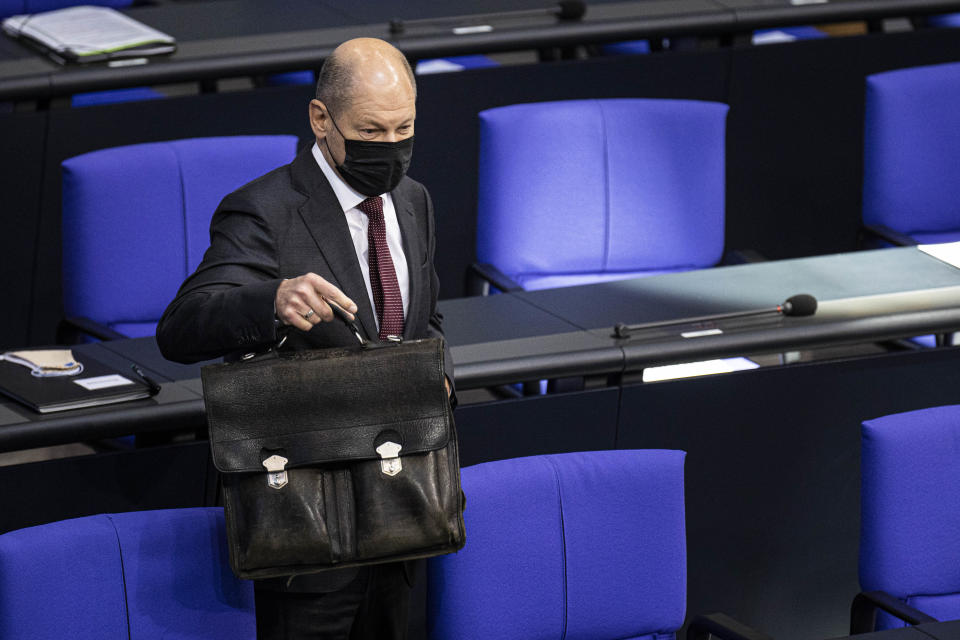Germany sets aside €10bn to compensate firms for November lockdown losses

As Germany prepares to go into partial lockdown from November, many businesses that will be shut, including those in the food and beverage sector, are deeply concerned about their survival.
Taking into account that several firms face losing income for entire month, the finance ministry announced on Thursday it will spend up to €10bn (£9bn, $11.7bn) to compensate companies for lost revenue for four weeks.
Companies with up to 50 employees will receive up to 75% of revenue, based on what they made in the same month in 2019. Larger businesses will be compensated for up to 70% of their monthly revenue.
READ MORE: Banks in Germany told to brace for post-pandemic bankruptcies
Having lifted its constitutional debt brake at the beginning of the pandemic, the government said it will borrow about €218bn (£198bn, $258.5bn) in 2020 to finance stimulus measures. The government is budgeted to borrow up to €96bn in 2021. In March, it announced a number of rescue and stimulus packages amounting to €750bn.
“The situation is serious… even if it does not feel that way for everyone,” finance minister Olaf Scholz said at a press conference in Berlin on Thursday. He described November as the “month of truth,” when the country will find out if it can get the spiralling COVID-19 numbers back under control.
Scholz said the government was mobilising "massive, hitherto unprecedented support for the industries affected by closures” to make sure they survive the lockdown month.
He also announced that the bridging aid will be extended into the next year, and loans from the KfW development bank will be developed to offer rapid "liquidity of up to €300,000.”
Germany on Thursday reported nearly 17,000 new COVID-19 cases, after 14,964 cases the day before. According to the Robert Koch institute, Germany has had 481,103 cases and 10,272 deaths.
READ MORE: Second lockdown could send Germany into economic relapse
“We have to act, and act now,” chancellor Angela Merkel said announcing the lockdown on Thursday. “The curve must be flattened again.”
Merkel warned that Germany faces four long, hard winter months. With the amount of people in intensive care with COVID-19 doubling in the past 10 days, she said the health system would be at its limit within weeks if infections were not brought under control.
"We are now at a point where, on average nationally, we no longer know where 75% of infections come from," Merkel said.
READ MORE: Germany announces lockdown for month of November
Restaurants, bars, cinemas, gyms, theatres, and other public and leisure spaces must close from Monday, 2 November.
Only two households are allowed meet, up to a maximum of 10 people in or outdoors. Travel within Germany and staying in hotels is also forbidden, unless it is an unavoidable business-related trip.
Shops (if they can ensure distance between customers), schools and kindergartens will remain open, and people can go to their workplaces if it is not possible to work remotely.
WATCH: Merkel decries populists who say COVID is harmless

